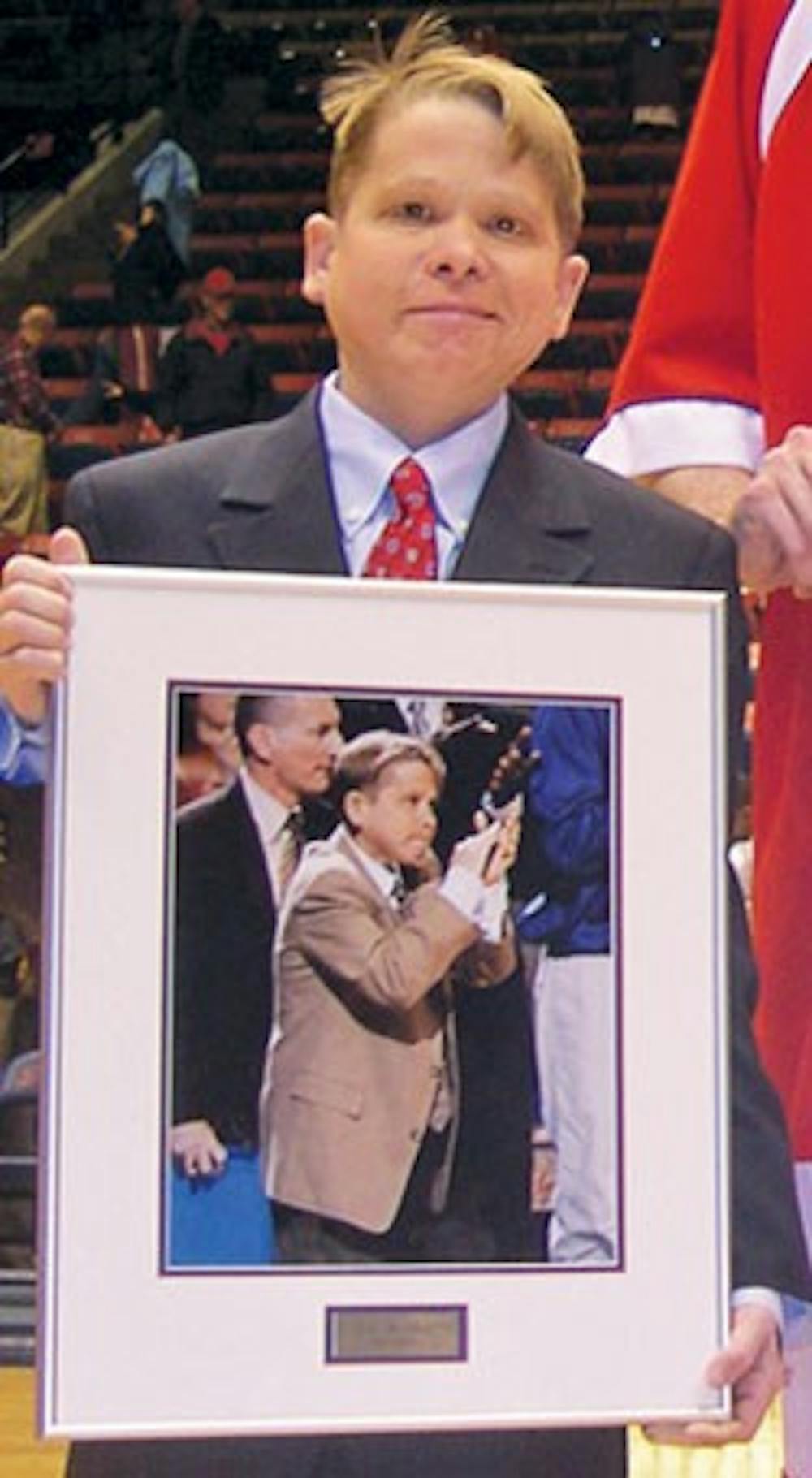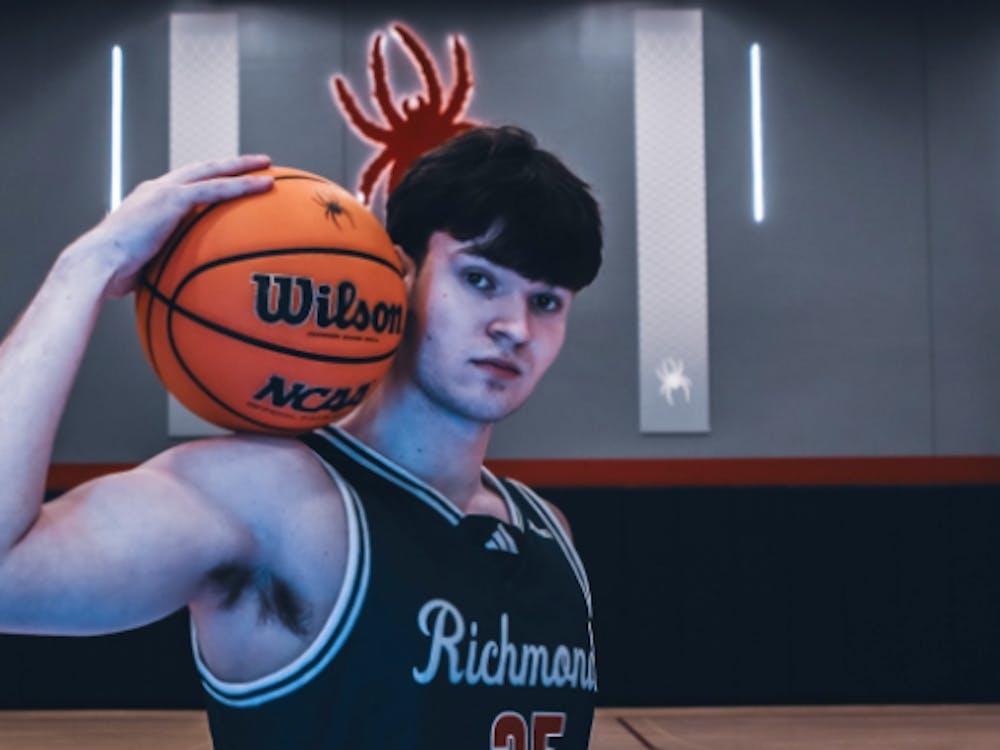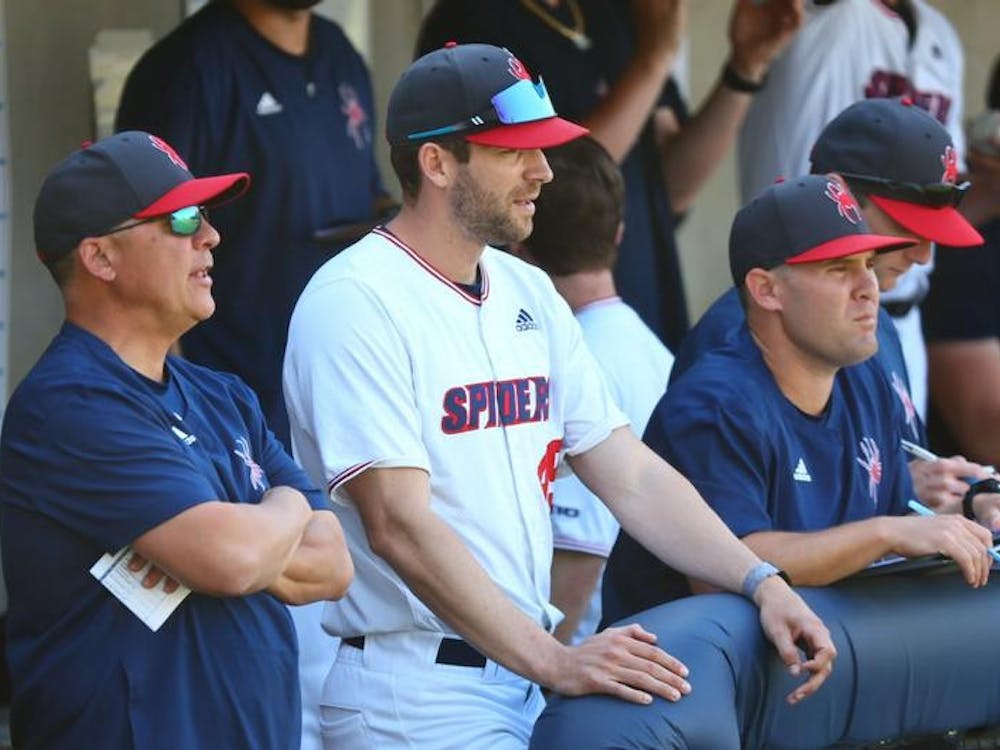During an Atlanta meet-and-greet for young alumni in October, former University of Richmond men's basketball team manager Daniel Woolley told new President Edward Ayers he was upset that Richmond had disbanded its sports management major.
"He kind of bit his ear off," his mother, Charlsie Woolley said.
Ayers asked Woolley if he would have majored in sports management. "I would have doubled-majored in it," Woolley responded.
Three days later, on Oct. 14, Woolley died of complications from kidney failure. He had turned 25 years old in September.
The story illustrates what those close to Woolley say best personified him — a love of sports and the ability to speak his mind.
"If he felt he was wronged by Mike Tyson, he'd take down Mike Tyson," said former Richmond basketball head coach Jerry Wainwright, who now coaches at DePaul University.
"He would keep us in line in the locker room," former player Patrick O'Malley said. "He had this kind of authority even though he was the smallest guy in the locker room."
Woolley stood five feet tall.
During his senior year, Woolley shared an apartment with former basketball player Kevin Steenberge. On their refrigerator, Woolley tacked a note listing various tasks, such as washing towels or doing the dishes. The list was titled, "Kevin's to-do list."
"It was funny this little five-foot person would tell this 6-foot 8-inch basketball player what to do," Charlsie Woolley said. "But Kevin did it."
Basketball was his passion. After every game his mother would call, but he never picked up, his thoughts locked on the night's sporting contest. "You never got between Dan and basketball," his mother said.
Enjoy what you're reading?
Signup for our newsletter
Woolley played basketball when he was younger, but poor health intervened. Woolley suffered from nephrotic syndrome, a disease that results from damaging to the kidneys' filtration system and allows protein to leak out of the blood stream into the urine. He was "perfectly healthy," until he was nine and a half years old, his mother said. Then his kidneys began to falter, and by the time he enrolled as a freshman at Richmond, he had had both kidneys removed.
But health concerns failed to keep Woolley from participating in his favorite sport. During high school, he worked as a statistician for local teams in Atlanta. At Richmond, he contacted the athletic department and became manager for then-coach John Beilein, who now coaches at the University of Michigan.
"They really didn't know how they were going to use him in the program because he was so small," Charlsie Woolley said.
As manager of the basketball team, Woolley's responsibilities included arranging road trips, managing practice, doing laundry and cutting film.
"No one wants to be in the Robins Center washing clothes on Friday or Saturday nights at one or two in the morning, but he never complained," said Jarhon Giddings, a freshman on the team during Woolley's senior year.
After Jerry Wainwright took over the program, Woolley became head manager. "You could never give him too much work," Wainwright said. He recalled arguing with Woolley to help carry one of the 100-pound equipment bags the team would travel with.
"I literally, at times, would almost get in fistfights when I picked up a bag of his," Wainwright said.
Even after spending 30 hours per week managing the men's team and majoring in accounting, Woolley still went to every women's game he could and offered advice, in his blunt fashion, to the players.
"He'd come to all of our games," said Araceli Gil, former Richmond women's team point guard. "I'd go grab some food after the game [with him], and he'd be like 'Man, you sucked that game.' And then he'd turn around and ask, 'Do you want me to rebound for you [during the next day's practice]?'"
But the one thing Woolley never talked about was the disease that eventually took his life. Every night, Woolley would hook himself up to a dialysis machine to have his blood filtered. And every month, a truck would pull up to his apartment to deliver 45 25-pound boxes of dialysis fluid. Woolley used a box and a half every night.
"He had to be hooked up to that thing eight to 10 hours a night, and never in my life did I hear him complain one night," former women's basketball player and close friend Kate Flavin said.
During 2003, when Richmond lost power during a hurricane, Woolley spent a night at the police station, because he needed the electricity to power the machine. Road trips were especially difficult because the machine, which the team called his "rocket pack," was heavy to transport and alarmed airport security.
"It was about the size of his whole upper body," O'Malley said. "The thing probably weighed as much as he did."
Wainwright remembered one road-trip during which the team traveled from Palo Alto, Calif., to Providence, R.I. The flight times made it difficult for him to stay on his dialysis schedule and left him sick and tired. Still, he never complained.
"Pity wasn't in his vocabulary," Wainwright said. "I never felt sorry because he never once would want you to."
Wainwright experienced Woolley's difficulties firsthand. Woolley spent summers at Wainwright's house, helping run his basketball camps.
"I would hear that monitor and that machine going every night and realize what he was going through," Wainwright said.
Woolley became close to the Wainwright family, and up until his death talked to Scott Wainwright, Jerry's son, now an assistant at DePaul, three or four times per week.
Charlsie Woolley said her son had a "father-son" relationship with Wainwright, a sentiment echoed by the DePaul coach.
"What he meant in terms of athletics or winning or to my family — very seldom do you have the opportunity to be effected like that," Wainwright said. "Whether it be Tim Duncan or Wilson Chandler at DePaul, Dan Woolley would be one of my top five experiences in my profession."
On Senior Night on March 5, 2005, Woolley's last year with the team, Wainwright stood at mid-court and introduced the three seniors, O'Malley, Jamaal Scott and Woolley, after the game. When he had to call Woolley's name, Wainwright hesitated to speak, choking back tears.
"He couldn't even introduce him," Charlsie Woolley said. "Dan said 'C'mon coach.' He didn't want him to make a big deal about it."
Woolley was a member of the 2004 Richmond team that made it to the NCAA tournament. The team was an at-large selection, earning a No. 11 seed and the opportunity to play the University of Wisconsin during the first round. "He was so proud of that team," his mother said.
Charlsie Woolley went to Wisconsin to watch the team. She remembered Dan wanted her to buy a T-shirt to commemorate the occasion. Most concession stands were sold out of shirts, but she finally managed to find one. "That's because George O'Malley [Patrick O'Malley's father] bought them all," Woolley told his mother.
Woolley graduated with honors in 2005 and went to work for Deloitte and Touche. He attended the Final Four in his hometown of Atlanta, this past year and had planned to attend a DePaul game to see Wainwright this year.
But when he didn't show up for a family dinner to celebrate his sister's 23rd birthday last month, his parents drove to his house and found him dead, lying on the sofa. During the funeral ceremony at Morningside Presbyterian Church in Atlanta, 400 people showed up, his mother said.
Wainwright said he received close to 50 phone calls the day Woolley died.
Flavin told the Richmond athletic department about Woolley's death, and the department established the Dan Woolley Educational Fund. The fund will be paid next year, fiscal 2009, to the manager of the men's and women's basketball teams for educational expenses. Brent Schneider, assistant director of athletics/development, who oversees all athletic fundraising, said 26 donors had donated almost $4,000 thus far.
Wainwright still uses Woolley's courage as an example to the players he coaches.
"I'll try to pass that on to every kid I coach," he said. "People who knew him will use him as a incredible example of strength in his life"
Support independent student media
You can make a tax-deductible donation by clicking the button below, which takes you to our secure PayPal account. The page is set up to receive contributions in whatever amount you designate. We look forward to using the money we raise to further our mission of providing honest and accurate information to students, faculty, staff, alumni and others in the general public.
Donate Now



